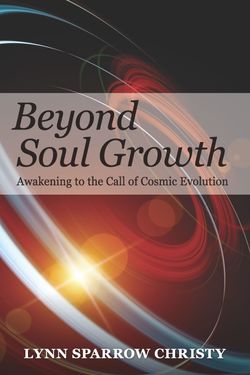Читать книгу Beyond Soul Growth - Lynn Sparrow Christy - Страница 17
На сайте Литреса книга снята с продажи.
Our Evolutionary Story
ОглавлениеThe story that unites theist and atheist in a commitment to cooperate with the evolutionary trajectory is truly an amazing one. Approximately 13.7 billion years ago the evolutionary advance began with the utter chaos that followed the Big Bang, giving rise to the galaxies 200-500 million years later as hydrogen gasses coalesced into stars. As the earliest life cycles of stars gave rise to carbon and oxygen through the death of stars, about 4.6 billion years ago, a planet like Earth could form from the debris in the burgeoning cosmos. And then, over the next several billion years, life began to emerge from matter, molecules combining into cells. And then came that miracle of miracles when the first multi-cellular cooperatives emerged. What forces were at work when single-celled life forms joined together? Some specialized in transporting nutrients while others specialized in sensing environmental conditions or making up a protective skin, for example, so that together they became one more complex and more adaptive life form. But come together they did, and from there life proliferated, complexified, and diversified until, a mere 1.8 million years ago, our ancestors first left the trees to walk upright on the ground.
Then, most anthropologists believe, human culture first emerged a mere 50,000 years ago—although fossil evidence of homo sapiens dates the arrival of human beings at about 195,000 years ago.
Along the way, every evolutionary advance has involved a growth in cooperation, natural selection notwithstanding. This is perhaps one of the great realizations of modern evolutionary thinking, and it is crucial to the spiritual application of evolution. The long, slow climb upward from the primordial beginnings of life has not been ruled entirely by the well-known principle of survival of the fittest. A look at the long story of evolutionary advance will show us that as life proliferates and complexifies, with the most adaptive outcomes of this experimentation (“the fittest”) surviving, those surviving life forms are in turn made more viable by their cooperative groupings. From the cells that first came together and specialized their functions for greater survival to the emergence of complex life forms with interdependent organs, and from family groups that banded together to increase their viability and on to tribes and nations, cooperative collectives have evolved in lockstep with evolutionary advance. The spiritual implications of this will be apparent: greater cooperation and unity are not simply abstract spiritual ideals; they are not only the signposts of personal growth; they are a major mechanism by which evolution itself takes place.
Nor is cooperation the only spiritually relevant growth that has accompanied the evolutionary advance. As the complexity of life forms evolves, so does the capacity for consciousness. Rather than an all-or-nothing view that attributes consciousness to some life forms (such as humans) and absence of consciousness to others (such as the grass growing in your front yard), the evolutionary perspective sees the potential for consciousness commensurate with the complexity of the particular life form. In the human being, we have evolution's current apex and therefore the greatest capacity for consciousness. This will be a theme that we return to many times in these pages, for it is one of the core aspects of the evolutionary spiritual path: How, specifically, do we actualize the potential for consciousness that is our evolutionary inheritance? And where is that growth in consciousness leading us? Up until now, evolution has been a largely unconscious process, with the forces of nature shaping the evolution of all things. (“Forces of nature” including, for the theist, the God who manifests as nature.) But now we are awake, aware. We know that we are conscious and we know about evolution. And that changes everything.
*Samuel Beckett, Proust, retrieved from goodreads.com.
2Matthew 24:3
35749-7 (Edgar Cayce readings are referenced throughout this work according to the numeric designation assigned to each reading. The first number represents either a person [whose name has been removed to protect privacy] or a topical grouping of readings. The number following the hyphen indicates where the reading falls in the sequence of readings for that individual or topic. In this case, it is the seventh reading in the 5749 series, a topical collection of readings about Jesus.)
41602-3
